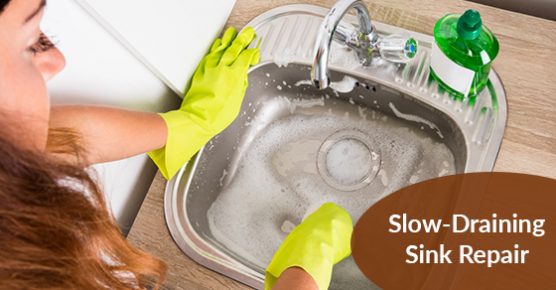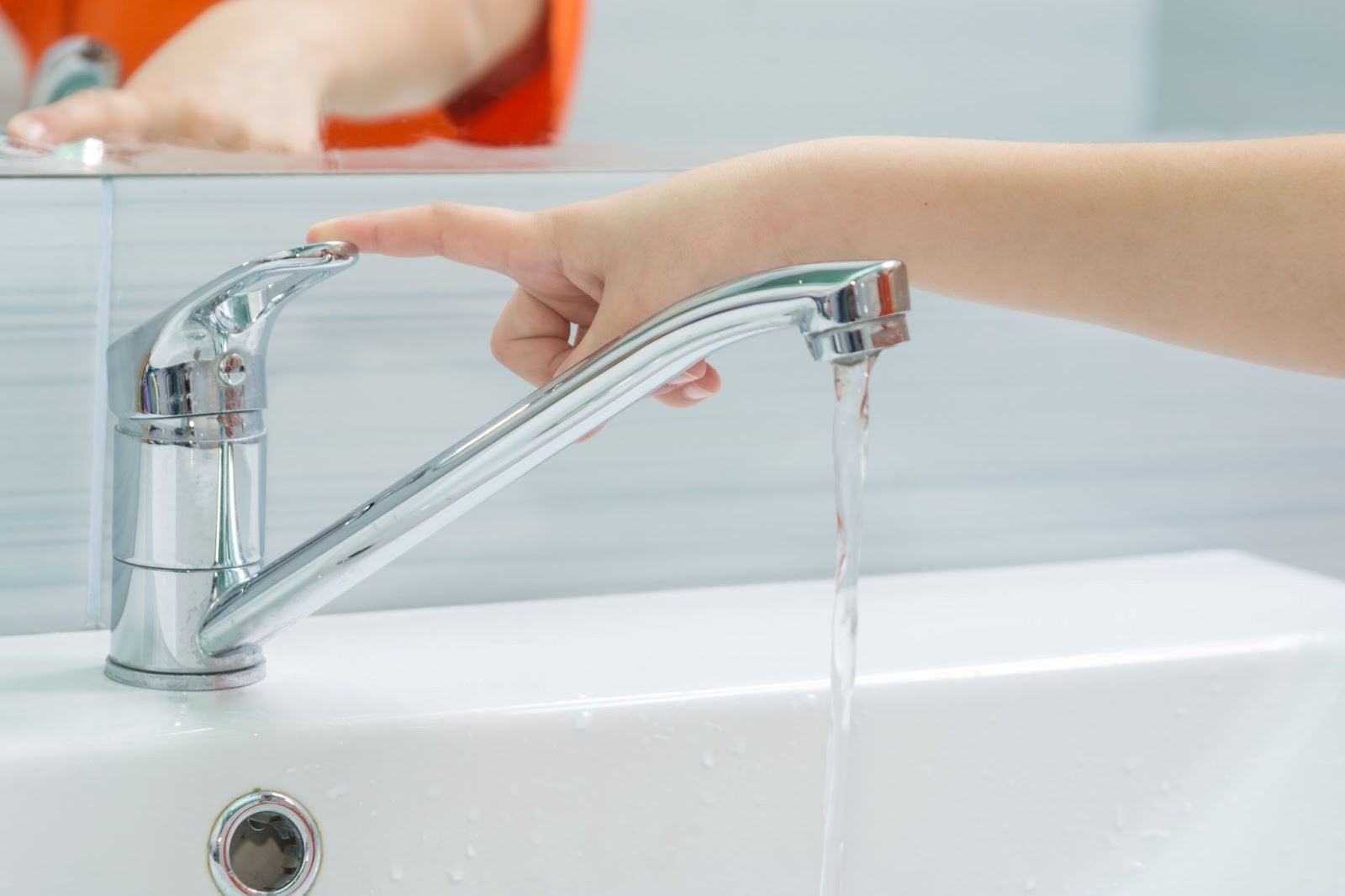What're your thoughts concerning Solved! How to Fix a Slow Sink Drain?

Intro
We have actually all been there: You're brushing your teeth or washing your hands, and you discover the water merging in the sink. Rather than rapidly swirling down the drain, it sticks around, turning your once-refreshing morning regimen into a miniature overload scene. A slow-draining sink isn't just frustrating; it's frequently a sign of larger plumbing issues hiding beneath the surface area. Fortunately is that the majority of slow-draining sinks can be taken care of with a little knowledge, a couple of basic tools, and some perseverance. All set to tackle this task head-on? Let's roll up our sleeves and dive right in.
Recognizing the Root Causes Of a Slow-Draining Sink
Prior to you begin poking around in your pipes, it helps to know what may be triggering the downturn. Comprehending the root cause makes it less complicated to pick the right fix.
Tools and Products You'll Require
The right devices make all the distinction. The good news is, you won't require a totally equipped plumber's van to finish the job.
Step-by-Step Guide to Repairing a Slow-Draining Sink
Currently, let's get into the nitty-gritty. This step-by-step procedure will assist you via straightforward methods to restore your sink's water drainage.
Step 1: Get Rid Of and Clean the Stopper
Often, the stopper (that little plug you lower to obstruct water) is the initial offender. Remove it carefully and clean off any type of hair or substance entraped around its base. Rinse it completely prior to placing it back in position.
Action 2: Make Use Of a Bettor to Dislodge Debris
Got that plunger ready? Setting it over the drain and give it a couple of company pumps. The concept is to develop suction that can loosen any type of obstruction. If you see littles particles drifting up, you're on the best track.
Step 3: Attempt a Drain Snake or Cable Wall Mount
If the bettor doesn't suffice, it's time to highlight the drain snake. Gently feed it right into the drain and twist as you go. You might really feel some resistance-- that's likely the clog. Maintain twisting and drawing until you get rid of the obstruction. If you don't have a drainpipe serpent, a corrected cable hanger can operate in a pinch.
Step 4: Use a DIY Drain Cleanser
A natural cleaner made from baking soda and vinegar can break down residual gunk. Put half a cup of baking soda right into the drainpipe, complied with by half a cup of vinegar. Allow it fizz for about 15 mins, then flush with hot water. This chain reaction often does marvels for small clogs.
Step 5: Reassemble and Check the Sink
Placed everything back together and run the tap. Does the water currently swirl away at a respectable rate? If yes, offer on your own a pat on the back. Otherwise, do not anguish-- there are still a few more dress up your sleeve.
Essential Devices for Do It Yourself Fixes
A plunger is your go-to beginning factor. A small, sink-sized plunger develops suction that can displace minor obstructions. For more consistent clogs, a drain snake (occasionally called a plumbing technician's auger) functions marvels. A pair of gloves, a flashlight, and perhaps a set of protective goggles are likewise useful.
Recommended Cleaning Solutions
Moderate meal soap and warm water can help break down greasy build-up. A blend of baking soda and vinegar is a tried and true natural home remedy, and enzymatic cleaners provide an even more environmentally friendly method. Maintain chemical drain cleaners as a last hope, as they can be rough on your pipelines.
Common Perpetrators Behind Slow Drain
So, what's clogging things up? Usually, it's a combination of everyday particles-- believe hair, soap scum, tooth paste residue, and leftover food particles. Over time, these little bits gather and hold on to the pipe wall surfaces, gradually narrowing the passage and making it harder for water to travel through. In many cases, natural resource from tough water can additionally add to the crud, producing the perfect storm for persistent obstructions.
When is it Time to Take Action?
If you observe the water draining pipes slower than usual, it's a great idea to interfere earlier as opposed to later. Waiting as well long might bring about complete obstructions, undesirable smells, and even pipeline damage. If the water takes greater than a couple of secs to remove after switching off the tap, consider it a warning and prepare yourself to put on your DIY hat.
Safety First: Precautions and Preparations
Prior to you launch into unclogging setting, consider safety and security. You're handling possibly dirty water and debris, so slip on a pair of gloves. If you're utilizing chemical cleansers, guarantee the space is well-ventilated and follow the guidelines on the label.
Protective Equipment and Work Area Arrangement
Put down some old towels or rags around the sink location to catch splashes. Eliminate any things that might enter your way, like soap dispensers or toothbrush holders. Make sure you have great lights-- grab a flashlight if needed.
Different Approaches for Stubborn Clogs
Not all clogs are produced equivalent. If your sink still rejects to cooperate, take into consideration these different services.
Baking Soda and Vinegar Technique
We already touched on this, however it deserves keeping in mind once more. This mild, eco-friendly approach is much safer than chemical cleansers and usually rather effective.
Enzymatic Drain Cleansers
Enzyme-based cleaners utilize all-natural germs to digest organic matter. They're an exceptional choice if you're wanting to stay clear of rough chemicals. Just remember, they might take a bit longer to work their magic.
Chemical Drainpipe Cleansers: Pros and Cons
Chemical cleansers can blow up with difficult blockages quick, but they're not without drawbacks. They can produce heat and fumes, damages pipelines if made use of excessively, and present ecological risks. Use them moderately, and constantly comply with the directions meticulously.
Safety Nets to Keep Your Sink Flowing
Avoidance is the most effective remedy. By adopting a couple of basic routines, you can maintain your sink from decreasing to begin with.
Regular Cleaning Routines
Clean down the sink basin and component location regularly. Eliminate hair or food particles before they have a chance to wash down the drain.
Avoiding Damaging Compounds Down The Tubes
Hesitate prior to discarding coffee premises, grease, or fibrous veggie scraps down the sink. These offenders cling to pipe walls, creating clogs with time.
Regular Maintenance Checks
Schedule a fast regular monthly inspection. Run warm water through the sink for a few mins, taking note of the flow. If it appears slow-moving, act quick prior to it becomes a full-blown blockage.
When to Call an Expert Plumbing Technician
In some cases, despite how tough you try, that block simply won't budge. That's when it's time to generate the pros.
Indicators That Indicate a More Severe Concern
If your sink drains pipes slowly despite several attempts, or if you observe water supporting in various other components (like your shower or commode), you might have an extra significant pipes concern prowling much deeper in the system.
Stabilizing Do It Yourself Initiatives with Professional Assistance
While DIY can save you cash and supply a feeling of accomplishment, there's no pity in calling a specialist. An expert plumbing technician can evaluate your whole pipes configuration, guaranteeing there's no underlying damages or long-term issue that can cost you a lot more down the road.
Comparing Prices and Long-Term Solutions
Before making a decision, think about the big picture. A cheap, quick fix could fix the problem temporarily, yet buying a more irreversible service can save you money and stress over time.
Considering the Expenses of DIY vs. Expert Solutions
DIY fixes commonly set you back little more than the price of a plunger or a bottle of baking soft drink. Specialist solutions, on the other hand, featured a cost yet might protect against repetitive problems and expensive repair work later.
Purchasing High Quality Fixtures and Upgrades
If your sink's layout contributes to constant blockages, it might be worth updating to higher-quality components or modifying the pipes layout. Consider this an investment in your house's performance and convenience.
Verdict
A slow-draining sink can feel like a minor irritability, however it's typically a sign that your pipes needs a little tender loving care. By comprehending the root causes, utilizing the right devices and methods, and devoting to easy safety nets, you can keep your sink streaming openly. And when all else stops working, never ever hesitate to employ a professional-- your home's plumbing deserves the financial investment in care and upkeep.
Three Common Ways to Fix a Slow Drain
Baking Soda Method
Boil a full pot of water. Measure out cup of baking soda and pour it down the drain. Then take cup of the magical cleansing substance known as white vinegar and drop that down there too. Allow the mixture to fizz in the drain for five minutes as the vinegar and baking soda combine. Now dump in that whole pot of boiling water. This combination of cleaning substances should clear out anything that is causing your sink to drain slowly. If it doesn t...
Zip-It
If the baking soda method doesn t clear out your drain, it may be because a significant amount of hair and/or other debris has collected there and you need to remove it. Purchase a Zip-It tool at any home improvement or hardware store and insert it into your drain. It will catch any collected hair or debris that s blocking the flow of water. Pull it out. If it s got a big clump of hair, etc. on the end, you ve probably got your culprit.
Drain Cleaner
If these methods don t work, there is the standard drain cleaner that you can also buy in a hardware store or even your local grocery store. It s better if you can use a household solution, but these drain cleaners often work in a pinch. They re very simple to use. You generally just dump them in your drain and wait. If even this method is not effective, it may be time to call the plumber.
https://www.mrrooter.com/oneida/about-us/blog/2017/july/three-common-ways-to-fix-a-slow-drain/

We were shown that report on Solved! How to Fix a Slow Sink Drain from an associate on another blog. Appreciated our article? Please quickly share it. Let somebody else find it. Thank you for your time invested reading it.
Call Today